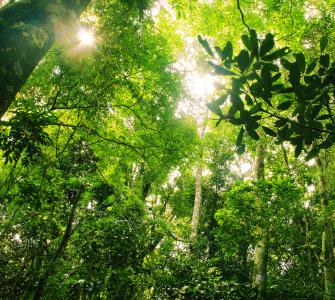PlanaFlor: Brazil’s Green New Deal for Nature-Based Economic Recovery
PlanaFlor is an initiative led by the Brazilian Foundation for Sustainable Development (FBDS), which aims to provide environmental, economic, and social considerations for the effective implementation of the Brazilian Forest Code in all Brazilian biomes. This law is intended to promote rural production by generating jobs and income while prioritizing forest protection and recovery.
Conservation Strategy Fund (CSF)-Brazil worked with BVRio in drafting technical reports in order to identify the monetary and impacts of land use changes proposed by PlanaFlor.
PlanaFlor's impact
Until 2025, PlanaFlor identified approximately 75 million hectares of degraded pastures across Brazil, prioritizing 44 million hectares for recovery and conversion by 2030. This included 12 million hectares for agriculture, 20 million for agroforestry and integrated systems, and 12 million for restoring native vegetation. These findings underscored the potential for sustainable land use to drive carbon mitigation, ecosystem recovery, and rural development.
CSF's role
CSF Brazil contributed to PlanaFlor by focusing on two key areas:
- Strategic design for conservation and reforestation: developing a national strategy to prioritize forest restoration and offsets based on ecosystem service demands, such as water supply, carbon storage, and biodiversity, while aligning with legal requirements and economic opportunities.
- Spatial prioritization for forest legal reserves: balancing restoration and compensation needs by integrating ecological corridors, water protection, carbon stocks, and agricultural land use, ensuring effective implementation of the Forest Code.
Phase 2: 2025 priorities
In the last phase of the project, CSF, FBDS, and BVRio focused on quantifying the monetary and climatic impacts of PlanaFlor's proposed land-use changes. The work included evaluating the economic value of ecosystem services resulting from restoring degraded areas and converting pastures into sustainable agricultural systems.
Key services analyzed included:
- Provision of non-timber forest products (NTFPs): supporting income generation and food security for local communities.
- Climate regulation: capturing and storing carbon to reduce greenhouse gas emissions.
- Water regulation and erosion control: securing water resources and supporting sustainable agriculture.
- Biodiversity and bioprospecting: preserving habitats while unlocking economic potential through natural resources.
- Additionally, the study assessed the avoided costs of preventing agricultural expansion into forested areas, reinforcing the importance of sustainable land-use planning to preserve Brazil's ecosystems.
Results
The results highlighted that nature-based land-use strategies can generate significant economic value over time, particularly in biomes like the Amazon and Cerrado. Even land-use options with lower financial returns per hectare showed greater benefits in terms of long-term social and environmental outcomes when compared to conventional practices.
By translating ecosystem services into economic terms, the study provided a robust foundation for public policies related to restoration, climate strategies, and environmental compensation. It reinforced the case that forest protection and sustainable land management are not only vital for conservation, but can also make sense economically.
This project was conducted in partnership with FBDS and BVRio, with funding from Norad.
___
Photo: Brazilian rainforest, earlytwenties/ Shutterstock.com

